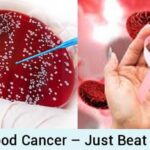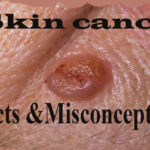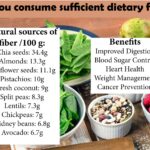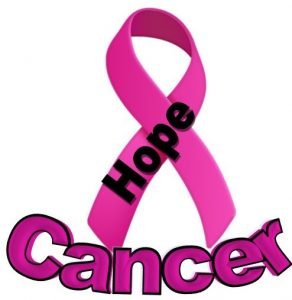

To prevent cancer:
- Increase intake of citrus fruits and dark green or yellow vegetables for vitamin-C, Beta-Carotene, Bioflavonoid.
- Stop fatty foods which are high in saturated fats like fried items, dairy products, Non-Veg food.
- Stop food which may contain pesticide residues and environmental pollutants.
The Anti – Cancer Diet:
- Enjoy plenty of vegetables and fruits. There are lots of Bioflavonoid and other dietary fibers, plant chemicals, foliate and antioxidants, Beta-carotene and Vitamin C in vegetables and fruits. These substances protect body cells by detoxifying carcinogens. Foliate is crucial for normal DNA synthesis and repair in contrast, low levels are thought to make cells vulnerable to carcinogens.
- A person should make habit of eating 3 different coloured vegetables and 2 different fruits daily to prevent cancer.
- Dark Green, Yellow, Orange, Red pigmented fruits and vegetables are best to be chosen as anticancer diet.
- Include Citrus fruit and Cruciferous Vegetables, eg: Cabbage, Cauliflower, Turnips.
- Reduce your fat intake
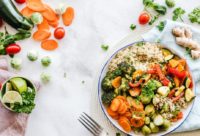

Eat more fibre….
Increased intake of fibres fastens the transit of waste through the colon and reduces the risk of bowel cancer. A high fibre, low calorie diet reduces the risk of cancers related to high body fat.
Eating when you have cancer:
Cancer patients may face problems like loss of appetite, nausea, and other eating problems. The following tips have worked for many cancer patients.
- Let someone else prepare food. Cooking odour may provoke nausea. Food that is served at room temperature or cold gives less odour than hot food.
- Have food with others in pleasant social atmosphere. Ask family members to bring home-cooked food to hospital after checking by dietician.
- To overcome nausea, try chewing ice chips or sucking a ginger candy or lemon before eating food.
- Rest in sitting or upright position for half an hour after having food. Lying flat may trigger reflux, nausea and vomiting.
- Plan your meal time when you are least likely to experience vomiting and nausea i.e. early morning. Otherwise eat in small frequent intervals.
- If mouth sores are the problem, eat bland food for example, rice and custards, puddings made with milk and blended soup. Avoid salty, spicy or acidic foods.
- If a dry mouth makes swallowing difficult, liquefy foods in blender and moisten them with low-fat milk and gravies.
- If Diarrh0ea is a problem (while chemotherapy) avoid fatty food, raw fruits, whole grain product and other foods that can make it worse. Instead eat rice, banana and cooked apples.
Say “no” to all these:
- Alcohol: Alcohol consumption hinders the body’s ability to use B-Carotene, which appears to protect against cancers. So, heavy drinkers have associate risk of cancer of month, larynx and liver. Alcohol reduces the reservation of folate, thiamine, vitamin-B and selenium.
- Smoking: It is the top most risk factor. Smoking is strongly associated with lung cancer, food pipe, mouth and breast cancer. Smoking depletes Vitamin-C and B-complex, Folate level which is linked to increased risk of many cancer.
- Fast foods: People who eat large amount of smoked, pickled, cured, fried, charcoal-broiled and processed fast foods have higher incidence of stomach and esophageal tumor. Smoked food contains poly-aromatic hydrocarbon known carcinogen. High quantity of salt in pickle can injure the stomach and facilitate tumor formation.
Dietary guidelines:
- In most cases of early or localized cancer, patients are generally advised to follow the diet that is low in fat, high in whole grain products and other starches, and high in fruits and vegetables.
- Fat, especially from animal sources are discouraged because they are believed to support the tumor growth. In contrast, fruits and vegetables contains natural plant chemicals that are thought to retard the growth of tumor.
- Protein is essential as it helps to repair the body. Daily 2 to 3 servings of cereals and sprouts can be used.


Dr Venkataramana Hegde
Veda wellness center
Nisarga Mane Sirsi
Uttarakannada District, Ph: 9448729434 Email : nisargamane6@gmail.com




